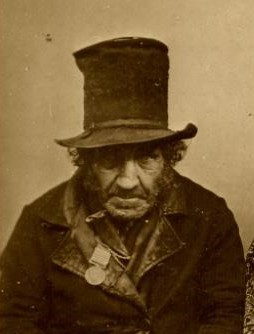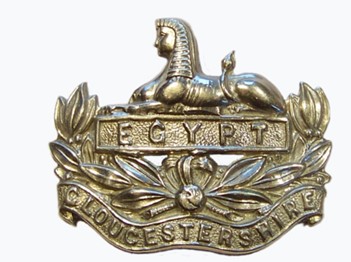
A headline on the Western Daily Press of 13.2.1875 reads:
DEATH OF A VETERAN SOLDIER AT STAPLETON WORKHOUSE.
A meeting of the Bristol Board of Guardians discussed the decease of John HILL, a Bristol Army veteran aged 96, one of the diminishing band who had followed Wellington up to and including Waterloo. If readers found it shocking that such a man, a native of Bristol, who had served his country valiantly should have ended his days in the Workhouse, they were at pains to state that this was by his own choice. A letter had been received by W. Thomas, esq., the Governor of the Incorporation of the Poor, St Peter’s Hospital, which was read to the assembly.
“Dear Sir
“I beg to inform you of the death of John Hill, a Waterloo veteran who died the 5th inst. at the venerable age of 96. He had been through the peninsular campaign and the three days engagement at Waterloo where he was wounded in the head by a fragment of a shell. To within a few months of his death he could describe vividly the various engagements though which he passed. I enclose a memorandum written by himself of the battles he took part in. He had been an inmate of the Workhouse 16 years. About three years since he was offered a place at Chelsea Hospital which he declined as he preferred to remain at Stapleton. He paid the Governors 3s 6d a week out of his pension for his maintenance and saved enough to defray the expenses of his interment at Arno’s Vale which sum he entrusted to an old friend who visited him and removed the corpse on the 6th. John Hill promised the three nurses who attended him night and day that they should have the money he left equally divided between them. The sum is 18s. I shall be glad to receive instructions what to do with the money.
I am sir, yours respectfully
Richard Thomas HUGHES.
The Memorandum stated that he belonged to the 1st Royals and had taken part in the following engagements:
Luga skirmish, 1808
Sahagon & Astorga Dec. 24th 1808
Corunna Battle, Jan 16th 1809
Island of Walcheran & Garrison of Flushing, Aug. 7th 1810.
Roderigo, Jan. 19th 1812
Badajoz, Apr. 6th 1812
Salamanca, Jul 22nd 1812
Vittoria, June 20th 1813
Pyrenees, July 25th 1813
St Sebastien, 1813
Bayone & Nieue, Sept 1813-Feb 1814
& Waterloo, June 16th, 17th & 18th 1815
Alas, as often, where money is concerned, human nature is at its worst. The following week, (20.2.1875) Mr Hughes wrote again with some unpleasant information. It seems the sum left was far greater than a mere eighteen shillings and jiggery pokery was suspected. He made enquiries and found that Hill’s cache amounted to £12.5s 6d. He searched the three nurses and discovered that one of them, CHURCHILL, had £7.19s 6d on him, plus another 30 shillings which he stated had been sent him. “The Guardians decided to take charge of Hill’s money for the present. The nurses, they thought had lost any claim due to their lies respecting the amount.”
So, despite Hill’s wishes, presumably the money went into the general fund. I can’t help feeling that the Guardians were as culpable as the nurses.
As John Hill was “a native of Bristol” and had been an inmate “for 16 years”, I checked for him in the 1861 & 1871 censuses. There was a John Hill at Stapleton Workhouse all right, but he was born at Bruton, Somerset. In 1871 he was “a pensioner” of 91 but in 1861, a general labourer, a mere 76 years old. I guess as he got older, as happens quite frequently I find, he had a birthday every six months! I think he was probably John, a son of Francis & Christian Hill, (nee Eldridge) baptised at St Mary the Virgin, Bruton, 20.10.1786.
A John Hill, 1st Regiment of Foot, (Grenadier Guards) joined the army aged 20 on 20.3.1805. According to Army Records he was born at Tiverton, Devon and is listed among the holders of the Peninsular War Medal.
(A version of the above article appeared in BAFHS Journal in 2015)
The picture at the top of this article isn’t John Hill but could be!











Leave a Comment